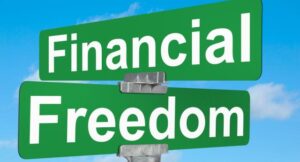The Importance of Earning for Survival and Freedom
The Importance of Earning for Survival and Freedom
In order to survive, one must have a steady stream of income. This could come from a job, an investment, or another source.
However, money is more than just a tool for survival. Once one reaches the next phase of this spectrum, they will start to see how it can bring freedom and fulfillment.
Meeting Basic Needs
According to psychologist Abraham Maslow’s hierarchy of needs, people must meet their basic physiological needs (food, water and shelter) before addressing their psychological and social needs. Without reliable access to these necessities, individuals can’t focus on higher level change efforts and are constantly worrying about meeting their next meal, finding safe shelter or finding work to earn a living.
Material hardship has been widespread since the start of the pandemic, exacerbated by economic instability and rising costs. Families with young children have been especially challenged to meet their basic needs in the face of job insecurity, income loss, acute concerns about health and safety and school closures. Emotional distress among parents/caregivers and their children is also significantly higher in households facing four or more hardships.
Students who have trouble meeting their basic needs face challenges that can affect their ability to focus on their studies, build relationships, maintain mental health, feel like they belong in college and remain enrolled. There is emerging evidence that interventions that reduce students’ basic-needs insecurity improve their academic success, including their likelihood of graduating.
Securing Shelter and Food
A steady flow of money is necessary to secure adequate shelter and food for oneself and family members. This may be in the form of service meals, grocery store vouchers, rent or mortgage assistance, utility payments to avoid shut-offs and transportation costs. If you are living near the bottom of the Survival phase, this will be a continual battle for existence; as you move up the scale to Preservation, it becomes less about survival and more about preservation.
Access to Healthcare and Education
Earning a living allows individuals to obtain the healthcare they need and pursue educational paths that allow for career mobility. However, a recent Guild webinar highlighted survey data showing that individuals in frontline non-allied healthcare roles are least likely to aspire to management or advanced patient care positions.
People with more education are also more likely to be employed in jobs that offer health-promoting benefits, such as insurance and paid leave, than those without a college degree. Furthermore, rural areas, where populations tend to have lower levels of education, are less able to access healthcare services because of lower economies of scale and scope, professional shortages and geographic barriers like long distances. Click on the states below to view customized estimates from SHADAC’s State Health Compare on the rates of adults who skipped needed care due to cost or did not have a personal doctor.
Independence from Reliance on Others
Having financial independence is not only important for personal wellbeing, but also to ensure that your basic needs are met. You need to be able to cover the costs of essential services, such as rent or food, as well as non-essentials, like entertainment, social activities, and personal technology.
Becoming independent can help you find a way to balance these expenses with your other goals, such as saving money, paying off debt, or investing in your future. You can achieve this by creating a budget, which is a simple framework for determining how much to spend on each of your bills. The 50/30/20 rule is a popular guideline that divides your after-tax income into categories such as needs, wants, and savings.
Becoming independent can also encourage you to make yourself a priority, and it can give you the ability to pursue your own interests and ambitions without being subject to other people’s demands. However, being too independent can be a dangerous thing, as it can lead to isolation and a lack of connection with others.
Ability to Make Personal Choices
A key element of financial freedom is the ability to make personal choices without being constrained by money. This allows individuals to follow their passions, take risks, and pursue dreams without fear of financial barriers. In other words, financial freedom gives people the power to do whatever they want in life—within moral limits, of course.
When people have a large amount of money, but are still low on the Survival phase of the spectrum, they may feel like they’re barely holding on to what they have. For example, a person who earns $300K a year but is racked up in credit card debt and has a mortgage on a house they can’t afford would likely be considered poor.
Sen argues that a person’s capability to live a valuable life depends on the value of their options and not simply the number of available functionings. For example, the eradication of malaria may enhance the capability of individuals living in a region even though it doesn’t increase their number of options to choose from.
Fostering Self-Esteem and Dignity
Those who respect themselves have an internal sense of happiness and are not dependent on external validation. They do not feel the need to flaunt their wealth, education or good looks. They also do not use their position to put others down or try to control them.
People with healthy self-esteem know their worth and are confident they can deal with difficult situations. They may be hesitant to step outside of their comfort zones, but they are willing to give things a go. They also take care of themselves physically and mentally, making a point of following health guidelines and avoiding harmful substances and behaviors.
In addition, they can recognize what they like about themselves and are able to acknowledge their achievements. They also have a clear definition of their values and morals, a commitment to uphold them and are not easily influenced by others’ opinions or views. This is when earning starts to shift from being a mechanism for survival to becoming a vehicle for dignity and a purpose-driven life.
Pursuit of Personal Goals and Aspirations
The pursuit of personal goals and aspirations helps individuals to feel a sense of purpose. It also fosters a healthy lifestyle by cultivating discipline and positive habits, such as exercising regularly or practicing mindfulness. In addition, achieving financial freedom can help individuals achieve their personal career goals and live the life they desire without being enslaved by debt or having to work solely for money.
However, it is important to note that the content of one’s personal goals and aspirations also matters. SDT research has shown that the pursuit of intrinsic aspirations, such as striving for meaningful relationships or making a difference in the world, is an important source of thriving, while the pursuit of extrinsic aspirations (e.g., gaining wealth and fame) can actually be a source of need-thwarting, which is detrimental to well-being.
Furthermore, effective goal pursuit has been shown to be facilitated by the degree of perceived goal progress. Previous studies have generally operationalized this variable as a person’s subjective evaluation of their rate of advancement toward their personal goals. These studies have typically included both cross-sectional and longitudinal designs, with multilevel and mediation analyses.

